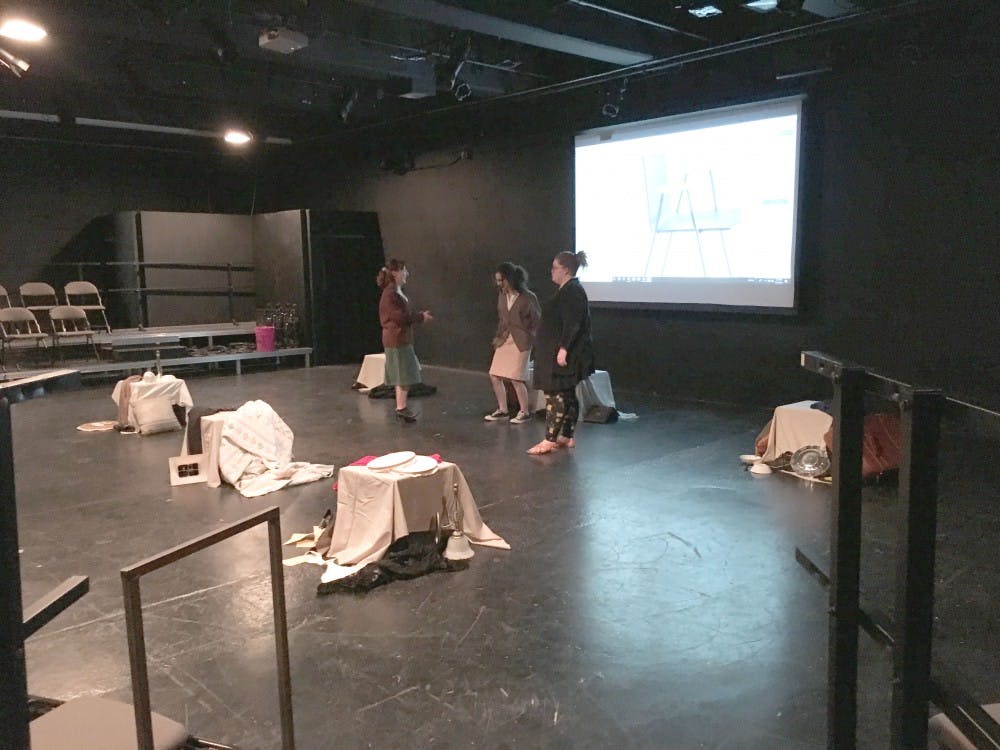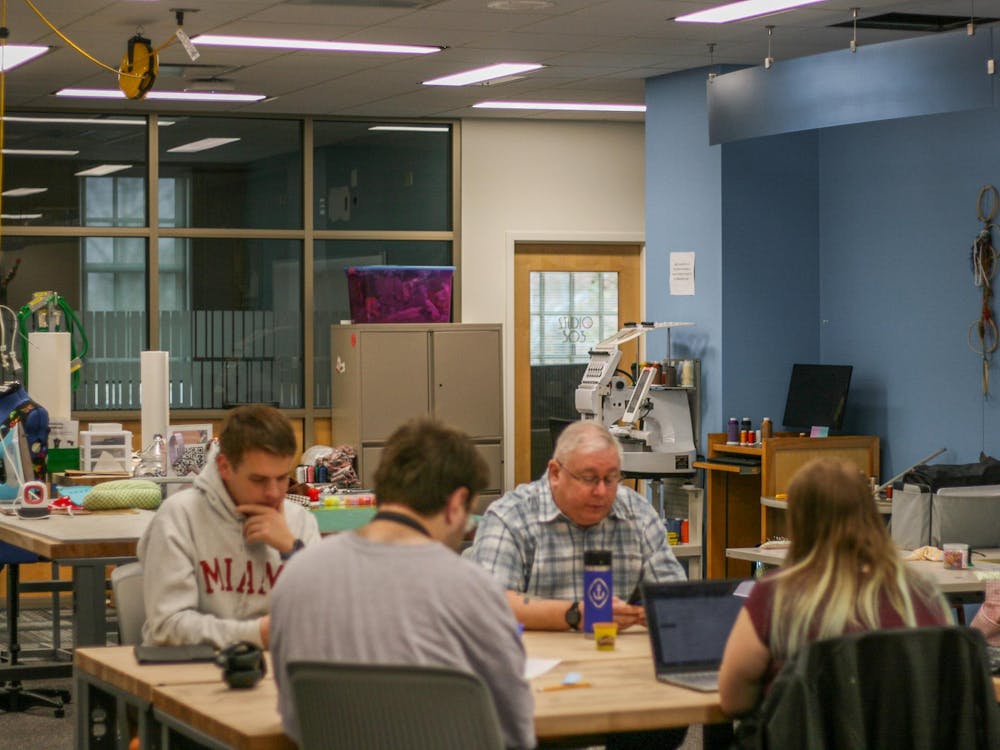Although Anne Frank is a household name, her diary describes just one of the many stories of young women whose lives were affected by the Holocaust. Many survivors, now in their 90s, have tried to remind the world what they went through, but their time on Earth is coming to a close.
"My children are never going to be able to talk to someone who went through this," said Madeline Mitchell, a senior theater and journalism double major (Mitchell is one of The Student's Culture-Editors-At-Large). "If 20 years from now there's no more survivors ... this is the next best thing that they can do: they can go into a theater and see some sort of retelling."
This weekend, survivor stories will be retold in a play of Mitchell's own making titled "The Experience of a Young Woman in Hitler's Europe."
Mitchell conceived the project while studying abroad in Luxembourg during the second semester of her sophomore year. She said she was inspired by her visits to Auschwitz and to bomb shelters in Naples, Italy.
"Originally what I wanted to do was have a play that told a story from a different woman in a different place in Europe ... and how the war affected the different countries within Europe," Mitchell said. "When I talked to my advisor, Ann Elizabeth Armstrong, she told me that was going to be too much for an audience to take in all at once."
In the end, Mitchell weaved together the stories of three survivors from Poland: Gerda Seifer, Jenny Zavatsky and Rywka Lipszyc. The play, produced through the Department of Theater and Honors Program, connects the narrative threads of these women through original poetry.
"The transition in between the pieces are a lot of times taking a theme or a line that stood out to me in the interviews and expanding on that in a more poetic voice," Mitchell said.
To aid with the project, the Honors Program flew Mitchell to Long Beach, California, where she spoke with Seifer and Zavatsky -- members of Mitchell's grandmother's synagogue -- about their experiences in Europe.
Actors Elena Fruechtnicht and Katie Boissoneault, who portray Jenny and Gerda respectively, used videos of Mitchell's interviews in order to practice imitating their characters' mannerisms.
For Boissoneault, preparing to play her character challenged her usual acting training, which discourages mimicry of another actor's performance.
"It was not 'What do I want Gerda to be?'" she said. "This is how she is in real life and these are the characteristics that I want to take on stage."
Both characters will be represented as the older women Mitchell interviewed, however, Boissoneault will use a walking cane in place of Siefer's motorized scooter. Additionally, neither actor will be visually aged-up with makeup.
Enjoy what you're reading?
Signup for our newsletter
The interviews also inspired the play's scenic design, which references a line from Mitchell's interview with Zavatsky that compared living in the \0x0141od\0x017A Ghetto to being surrounded by "piles of trash."
In addition to interviewing survivors, Mitchell read survivors' diaries, which is how she learned about Lipszyc's story.
"If you walk into my room it's so creepy because its just all of these diaries of these people," Mitchell said. "I chose Rywka's diary because the story was really powerful to me of how it was found and the mystery of not knowing what happened to her."
Records indicate that Lipszyc was admitted to a hospital after being liberated from Auschwitz, but it is unknown whether she died or was released. Zinaida Berezovskaya, a Russian doctor, found her diary amid the ashes of the crematorium. In 2008, Berezovskaya's granddaughter gave the diary to the San Francisco Holocaust Center. In 2014, an English translation of the diary was published, offering insight into Lipszyc's life before the war.
Because the end of Lipzsyc's story is unknown, her character in Mitchell's play remains stuck in time as a 14-year-old girl, played by Jordan Myers.
"It's such a responsibility to tell this girl's story because she doesn't get to anymore," Myers said. "She's kind of sassy, so I really like that about her, and she's also sick though in the script. You have to play sassy and sick, so I guess it's deriving her personality from the words you are given in the script and in her diary."
On top of being the project's playwright, Mitchell said she performs in the show as a narrator figure who at times acts as a characterization of herself, and at other times as "an echo of the millions of other people that aren't represented specifically in this story."
The show opens with the line "We love our bread, we love our butter, but most of all we love each other," a phrase Mitchell's family recites before dinner.
"When I was three and I was at Jewish preschool, we had to say that before we could eat our snack," Mitchell said. "I added it because I wanted to feel like I had a character and I wanted to put a bit more personality into it."
Fruechtnicht, who also designed the show's costumes, said the project's purpose to preserve survivor stories has made all the work worthwhile.
"It kind of adds more pressure in a good way to make sure we're telling the story right," she said. "I want to make sure I'm getting the details right and I'm telling it the way [Zavatsky] would want it to be told."
Performances will be at 7:30 p.m. on Thursday, May 2 and at 2 p.m. on Saturday, May 4 held in Studio 88 within the Center for the Performing Arts. Admission is free.




